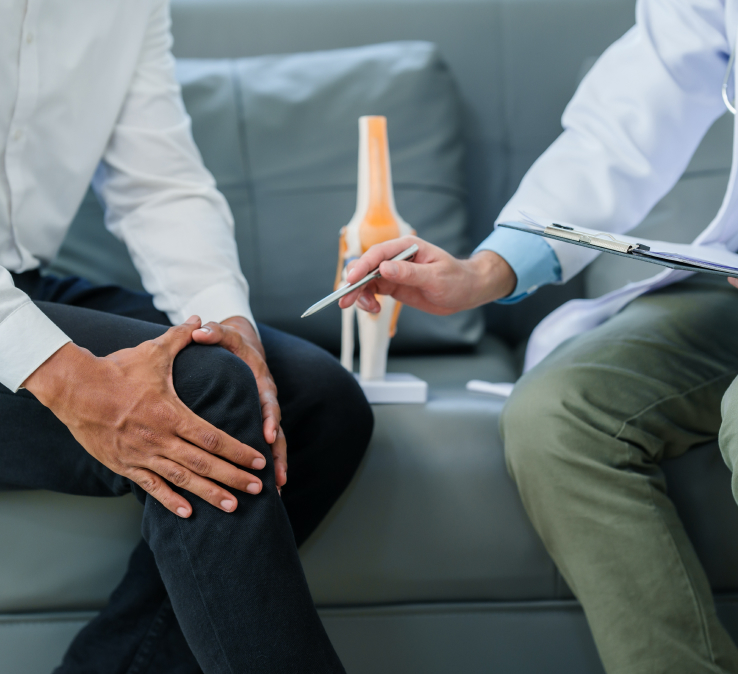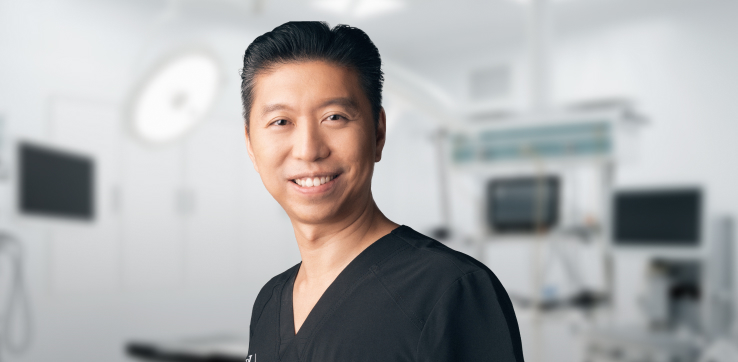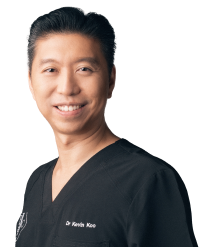Knee Care Treatments

When assessing your knee problems, our orthopaedic specialist, Dr Kevin Koo will begin with a comprehensive physical examination—checking for pain, swelling, joint stability, deformity, and range of motion. To better understand the nature of your injury, Dr Koo will also review your medical history, lifestyle factors, and specific symptoms such as locking, instability, or clicking sensations. Depending on the initial findings, diagnostic imaging such as X-rays, MRI, or CT scans may be used to examine the bones, cartilage, ligaments, and surrounding soft tissues in greater detail.
These insights help our knee care team identify the exact cause of your knee pain and determine the most appropriate treatment plan—whether conservative management or surgical intervention is required.
Extracorporeal Shock Wave Therapy (ESWT) is a non-invasive treatment that uses high-energy sound waves, also known as shock waves, to promote healing of tendon, muscle and other tissue injuries/conditions in the knee. In some cases, ESWT can help patients avoid surgery altogether. Many also experience noticeable pain relief after just one session. Typically, a course of three to six sessions is recommended for optimal results and long-term symptom resolution.
Corticosteroid injections help reduce inflammation and offer rapid relief from knee pain associated with arthritis or other inflammatory conditions. Hyaluronic acid injections, on the other hand, act as a lubricant within the knee joint—enhancing mobility and providing cushioning during movement.
Anti-inflammatory medications, such as non-steroidal anti-inflammatory drugs (NSAIDs), are prescribed to manage pain and swelling in knee conditions like osteoarthritis, tendinitis, and ligament injuries. These medications help reduce joint inflammation, alleviate discomfort, and improve mobility.
A customised rehabilitation programme can help reduce pain, restore mobility, and strengthen the muscles that support the knee joint. Physiotherapy not only supports healing but also helps prevent future injury and improve overall knee joint function.
Arthroscopic meniscus surgery uses a small camera and specialised instruments to treat meniscus tears. Depending on the type of injury, the torn tissue may be repaired, trimmed (partial meniscectomy), or in severe cases, replaced with donor tissue. The goal is to relieve pain, restore knee function, and preserve as much of the natural meniscus as possible.
Ligament reconstruction is performed to restore stability and function to the knee following injury to the anterior cruciate ligament (ACL) or posterior cruciate ligament (PCL). Using grafts from the patient or a donor, the torn ligament is replaced through minimally invasive techniques to support safe return to daily activities or sports.
Tendon repair is performed to restore function after a tendon in the knee—such as the quadriceps or patellar tendon—has been torn. The procedure involves stitching the torn ends together, sometimes using anchors or sutures, to reattach the tendon and restore strength and mobility to the knee.
Cartilage surgery is often necessary when cartilage or surrounding bone and tissue require repair or removal. Common procedures include arthroscopy to remove damaged cartilage, microfracture surgery to encourage new cartilage growth, and osteotomy to reduce pressure on damaged cartilage with bone realignment—all aimed at restoring joint function and reducing pain.
Knee replacement surgery—also known as knee arthroplasty or total knee replacement surgery—involves removing damaged bone and cartilage from the thighbone, shinbone and kneecap, and replacing them with an artificial joint (prosthesis) made from metal alloys, medical-grade plastics and polymers.
 Dr Kevin Koo Oon Thien
Dr Kevin Koo Oon ThienDr Kevin Koo is an established orthopaedic surgeon with over 20 years of experience diagnosing and treating a wide range of knee conditions. He completed advanced training in London at St. Mary's and Charing Cross Hospitals, under Imperial College Healthcare, where he worked alongside renowned orthopaedic surgeons and dedicated care to professional athletes and dancers.
He is an active contributor to the global orthopaedic community and has presented his work at numerous international and regional conferences, including the esteemed American Academy of Orthopaedic Surgeons (AAOS).
Dr Koo focuses on minimally invasive treatments that help reduce pain and speed up recovery. He specialises in knee joint replacements and sports injury surgery, helping patients restore their knee function and mobility.
Please use the form below to connect with our team—send us your enquiry or request a consultation. We will be in touch with you shortly to guide you through your next steps.
For further assistance, contact us at 98987781
| Mon - FriMonday - Friday | : 8:30am to 5:30pm |
| Sat, Sun & PHSaturday, Sunday & PH | : Closed |
| Tel. | : +65 6970 5905 |
| Fax | : +65 6970 5906 |
| Mobile | : +65 9898 7781 |
| : hello@bjc.sg, drkevinkoo@bjc.sg | |





